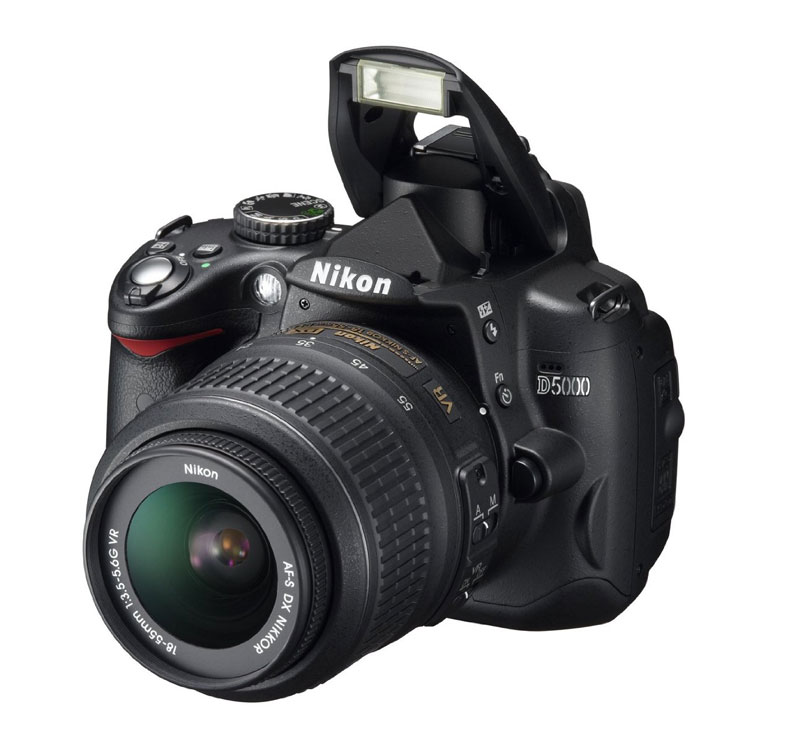Nikon D5000 HDR Camera Review
If you’re just getting into HDR photography, selecting a camera that best suits you can be a pretty daunting decision. ?Do you go with Nikon, Canon, or someone else? ?Which is the best lens for your style of photography? What kind of tripod do you need?
That said, if you’re just starting out, I’m going to try and make your decision at least a little bit easier. I believe the Nikon D5000 is the best entry level DSLR camera for shooting HDR photography.
Gotta Have the Brackets…
When you’re just beginning, it’s easy to get distracted by thing like # of megapixels, fancy lcd screens, and all sorts of other pieces of marketing hype. ?Essentially, you should just ignore most of that. These days any camera that you’d consider buying will have plenty of megapixels for what you’re going to do, and the quality of your lcd really doesn’t matter.
However, when shooting HDR there are couple things you do want to have.
The first is the ability to shoot in brackets. ?HDR photos are generally comprised of at least 3 images of varying exposures. ?The more automated you can make those images, the better the results are going to be in post processing. ?While the Nikon D5000 doesn’t have a dedicated “bracket” button on camera like it’s older brother the D90, it does have a programmable function button in the same spot. ?This allows you to setup your brackets with one button push, and makes it really easy to do HDR on the fly.
While in a lot of regards Nikon’s newer D3100 is a better camera, the reason I wouldn’t suggest it for HDR is due to it’s inability to bracket photos.
For newbies, simple=good
One area where the D5000 really shines for new (HDR) photographers is it’s similarities to point and shoot cameras. ?Unlike more professional DSLRs, many of the shooting options are found in menus, rather than on camera controls. ?While the pro might cringe at the thought of this, it’s actually makes for a nice transition out of point-and-shoot world and into the world of DSLR.
Don’t get me wrong however, all of the most important controls such as exposure, shutter speed, and aperature are on camera, and just a click away.
By not getting bogged down in the technicalities of a new camera, you’re able to put more thought into your photos and your HDR setups.
Price and Performance
In terms of bang for you buck, I really think that the D5000 is one of the best values out there. ?You can get the body and a basic 18-55mm lens for around $600. ?Compare this to $700-800 for just the body of the D90, which is the next Nikon up.
In terms of image quality, until you jump up to the full frame cameras like the D700 and the D3, there isn’t a ton of difference. ?In the end it comes down to the quality of the lens. ?That said for $120 you can pick up the Nikon F/1.8 50mm which is one of the sharpest and most affordable lenses around. ?This is especially nice for low light HDR work.
Drawbacks
As this is an entry level camera, there are going to be some obvious drawbacks to the D5000. ?It’s frame rate maxes out at 4fps, as opposed to more expensive cameras that can double that or more. That said, you’re paying nearly triple the money to get that capability. ?With advances in HDR software like Photomatix and HDR Efex Pro, even handheld shots with this camera can align well, and create some fantastic images. ?But as with HDR with any camera, for best results you should use a tripod.
Conclusion
In the sub $1000 range, this camera can’t be beat. ?The D90 has some nice features, but for around $400 more, it just isn’t worth it if you’re just starting out.

[…] in to the camera, so it won’t work with some of Nikon’s base models like the D3100 and D5000. That said, I’ve used it on multiple occasions with the D5000 and it’s performed […]
[…] as well as it’s feature set. This especially considering, it was released right after the D5000 which, for not a whole lot more, was overloaded with cool new […]
This camera only has a 3 shot bracket at a .5 step exposure compensation for a total range of only 1 exposure value…not really enough for serious HDR
Actually it’s 3 shots at +/- 2 step exposure – which is on par with many higher end Canon options. I’ve used a D5000 personally for almost all of the HDR work I’ve done and it’s worked great. Most serious HDR photographers will also bracket manually at 5 or 7 exposures, so it’s really not too big of a deal. I think this is an excellent camera for the introductory HDR photog.